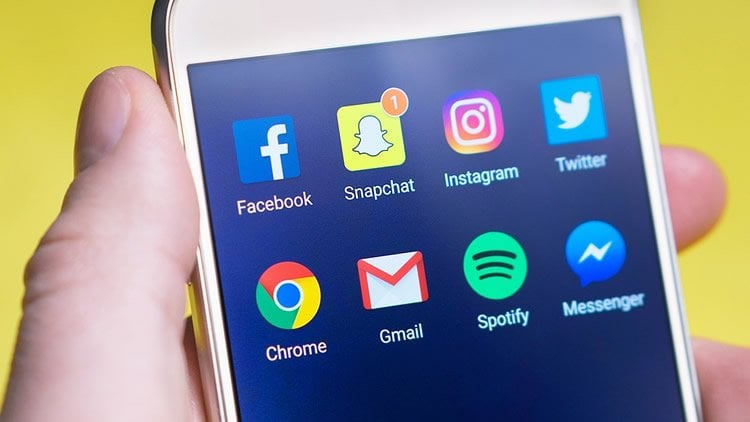Summary: Researchers link social media factors to major depressive disorder in Millennials. The study found those with MDD were less likely to post photos of themselves with other people and reported having less social media followers.
Source: Wiley.
Certain social media factors were linked with major depressive disorder (MDD) in a Journal of Applied Biobehavioural Research study of Millennials.
In the study of 504 Millennials who actively use Facebook, Twitter, Instagram, and/or Snapchat, individuals who met the criteria for MDD scored higher on the Social Media Addiction scale, were more likely to compare themselves to others better off than they were, and indicated that they would be more bothered by being tagged in unflattering pictures. Regarding social interactions, those with MDD were less likely to post pictures of themselves along with other people and reported fewer followers.

“While this study highlights social media behaviors that are associated with major depression, it is important to recognize that social media use can offer many positive benefits, including fostering social support,” said co-author Dr. Krista Howard, of Texas State University. “The key is for individuals to develop an awareness of how they currently use social media and to determine what changes could be made in their social media use to reduce the behaviors associated with psychological distress. Some changes could include reducing the time spent on social media, unfollowing individuals or groups that cause distress, or limiting online social comparisons.”
Source: Penny Smith – Wiley
Publisher: Organized by NeuroscienceNews.com.
Image Source: NeuroscienceNews.com image is in the public domain.
Original Research: Abstract for “Social comparisons, social media addiction, and social interaction: An examination of specific social media behaviors related to major depressive disorder in a millennial population” by Anthony Robinson Aaron Bonnette Krista Howard Natalie Ceballos Stephanie Dailey Yongmei Lu Tom Grimes in Journal of Applied Biobehavioural Research. Published January 8 2019.
doi:10.1111/jabr.12158
[cbtabs][cbtab title=”MLA”]Wiley”Negative Social Media Behaviors Associated with Depression in Millennials.” NeuroscienceNews. NeuroscienceNews, 9 January 2019.
<https://neurosciencenews.com/social-media-depression-millennials-10471/>.[/cbtab][cbtab title=”APA”]Wiley(2019, January 9). Negative Social Media Behaviors Associated with Depression in Millennials. NeuroscienceNews. Retrieved January 9, 2019 from https://neurosciencenews.com/social-media-depression-millennials-10471/[/cbtab][cbtab title=”Chicago”]Wiley”Negative Social Media Behaviors Associated with Depression in Millennials.” https://neurosciencenews.com/social-media-depression-millennials-10471/ (accessed January 9, 2019).[/cbtab][/cbtabs]
Abstract
Social comparisons, social media addiction, and social interaction: An examination of specific social media behaviors related to major depressive disorder in a millennial populationn
Although studies have shown that increases in the frequency of social media use may be associated with increases in depressive symptoms of individuals with depression, the current study aimed to identify specific social media behaviors related to major depressive disorder (MDD). Millennials (N = 504) who actively use Facebook, Twitter, Instagram, and/or Snapchat participated in an online survey assessing major depression and specific social media behaviors. Univariate and multivariate analyses were conducted to identify specific social media behaviors associated with the presence of MDD. The results identified five key social media factors associated with MDD. Individuals who were more likely to compare themselves to others better off than they were (p = 0.005), those who indicated that they would be more bothered by being tagged in unflattering pictures (p = 0.011), and those less likely to post pictures of themselves along with other people (p = 0.015) were more likely to meet the criteria for MDD. Participants following 300 + Twitter accounts were less likely to have MDD (p = 0.041), and those with higher scores on the Social Media Addiction scale were significantly more likely to meet the criteria for MDD (p = 0.031). Participating in negative social media behaviors is associated with a higher likelihood of having MDD. Research and clinical implications are considered.






